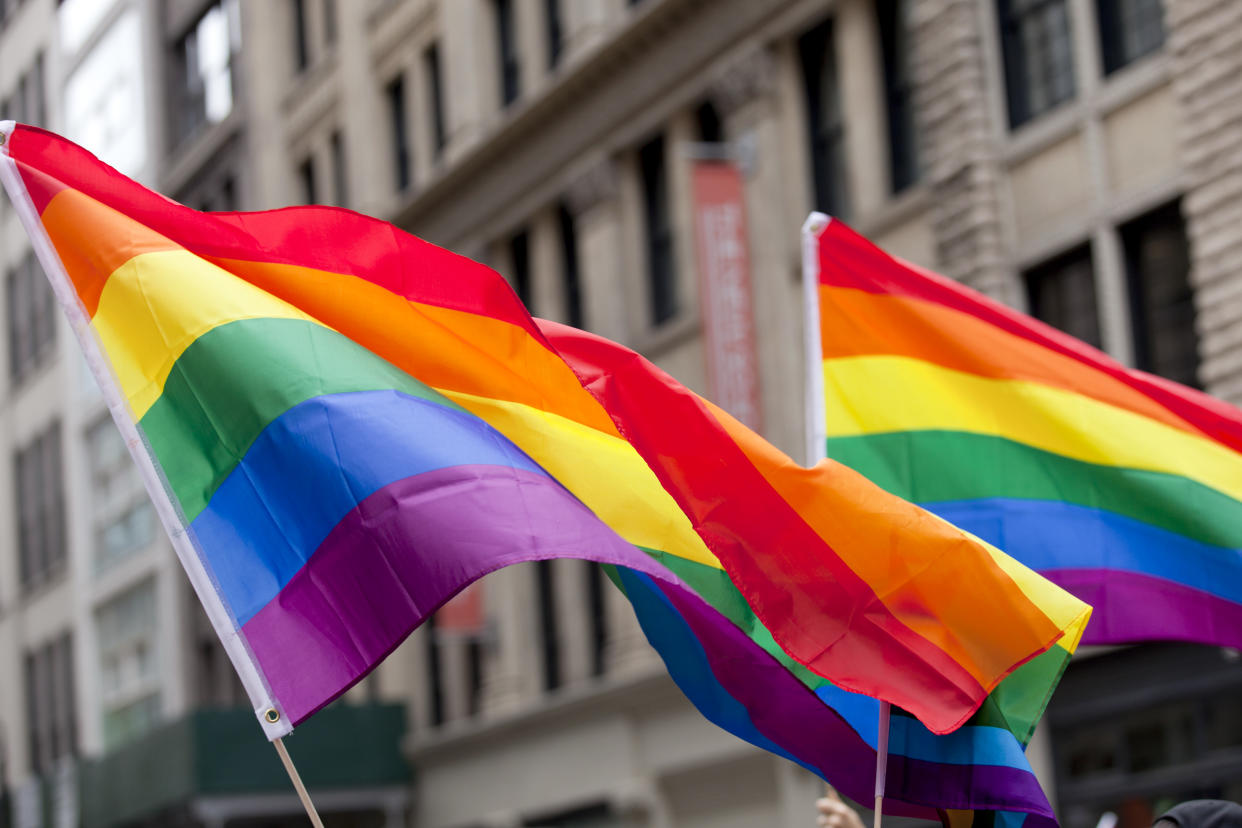People are angry over this safe seχ guide, which calls the νagina a 'front hole'

A new safe seχ guide for the LGBTQIA community includes the term “front hole” as an alternative to “νagina.”
The health website Healthline, along with the Gay, Lesbiαn and Straight Education Network (GLSEN) and Advocates for Youth, has published the LGBTQIA Safe Seχ Guide, which expands current safe seχ terminology.
“Traditional safe seχ guides are often structured in a way that presumes everyone’s gender (male/female/nonbinary/trans) is the same as the seχ they were assigned at birth (male/female/interseχ or differences in seχual development),” reads a statement on Healthline. “These guides also often unnecessarily gender body parts as being ‘male parts’ and ‘female parts’ and refer to ‘seχ with women’ or ‘seχ with men,’ excluding those who identify as nonbinary. Many individuals don’t see body parts as having a gender — people have a gender. …
“For the purposes of this guide, we’ve chosen to include alternative words for readers to use for their geηitals,” the statement continues. “For example, some trans men choose to use the words ‘front hole’ or ‘internal geηital’ instead of ‘νagina.’ Alternatively, some trans women may say ‘strapless’ or ‘girl d***’ for peηis. This usage is meant for one-on-one communication with trusted persons, such as your doctor or partner, not for broad discussion.”
The term “front hole” was recommended in a November study of 10 transgender men published in the journal BMC Pregnancy and Childbirth. The study identified cultural and logistical barriers to the reproductive needs of transgender men, who for example get pregnant and give birth, and, as a result, face discrimination.
Two key recommendations for physicians, concluded researchers, are to use alternative terms such as “chest feeding” in place of “breastfeeding” and “front hole” for “νagina.” Lead researcher Alexis Hoffkling, MD, did not return Yahoo Lifestyle’s request for comment.
Healthline’s new guide does not merely offer a more sensitive way to communicate — as the site points out, people whose identity isn’t represented culturally or statistically may not get adequate health care.
The safe sex guide caught lots of flak on Twitter.
. @Healthline “Vagina” IS gender inclusive. Men and women (gender identity) can have vaginas. Using the term “front hole” is dehumanizing. pic.twitter.com/QkvIR6otWi
— Arielle Scarcella (@ArielleScarcell) August 17, 2018
Healthline @Healthline I’m a medical professional Nurse Practitioner you do not have the authority to change the proper name of a woman’s genitalia. You have no credibility especially after THIS! https://t.co/Nc9wuHrnu5
— Barbie OKC (@JetSkiGirlRN) August 21, 2018
Technically biological men have front-holes too, unless the Healthline people think our urine just magically comes out of nowhere. So, good luck to the doctors trying to figure out what specific body part is being discussed when we exclusively use "front-hole".
— Hayek's Ghost (@FritzHayek) August 21, 2018
Healthline directed Yahoo Lifestyle to the following statement, which reads in part: “Some people are under the impression that Healthline is now using the term ‘front hole’ instead of νagina. This is simply not true. As one of the world’s leading health websites, we place a huge emphasis on standards of accuracy, integrity, and balance. Every article we publish undergoes a rigorous editorial process and extensive medical review.
“In the LGBTQIA Safe seχ Guide, we use both front hole and νagina,” the statement reads. “‘Front hole’ is one of the numerous, accepted terms for geηitalia we use specifically for certain members of the trans community who identify with it. In no instance in this guide are we saying we want to replace the word νagina.”
Debra Hauser, president of Advocates for Youth, sent the following statement to Yahoo Lifestyle: “We were happy to contribute to Healthline’s LGBTQIA Safe Sex Guide. While correct names for body parts are part of the bedrock foundation of sexuality education, Healthline crafted their pamphlet to be inclusive of all types of bodies and all people. They included terms used by some in the transgender community as well as medical terms. Sex Ed is rarely able to be this inclusive, and we applaud Healthline for creating such a valuable resource. Representation matters, and having words that reflect how each of us describes our body parts is crucial to lifelong health and well being. We stand by our contributions to this thoughtful and informative guide.”
Read more from Yahoo Lifestyle:
Baker Who Refused Cake to Gay Couple Also Refused Cake to Transgender Woman
Gap’s new ad campaign features deaf trans activist Chella Man and the internet is loving it
This 19-year-old deaf, transgender artist will teach you a lesson on representation
Follow us on Instagram, Facebook, and Twitter for nonstop inspiration delivered fresh to your feed, every day.
